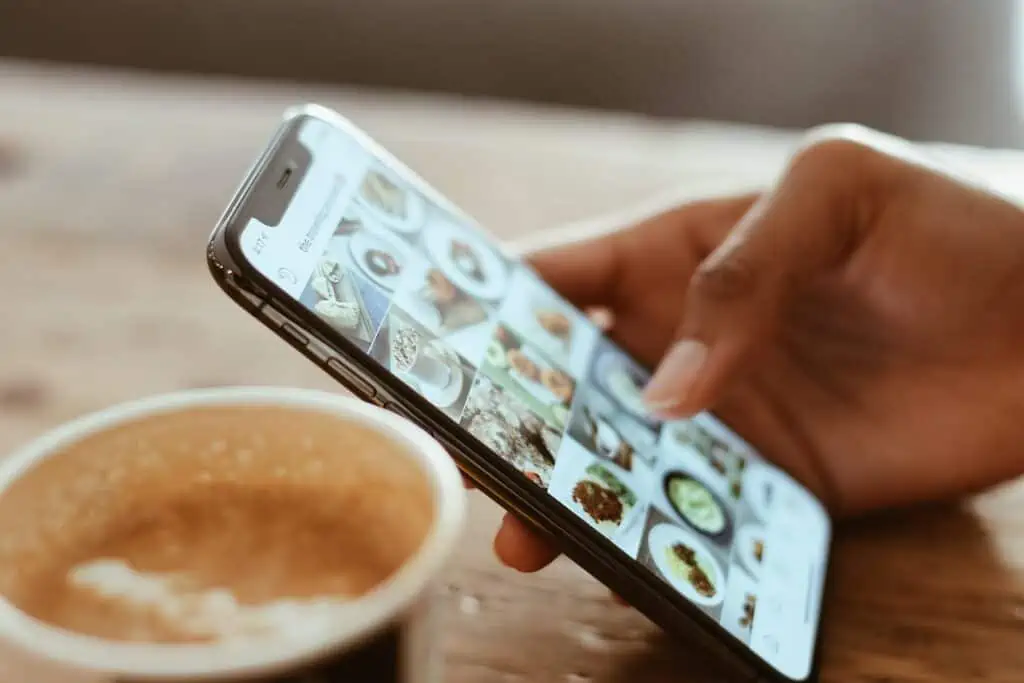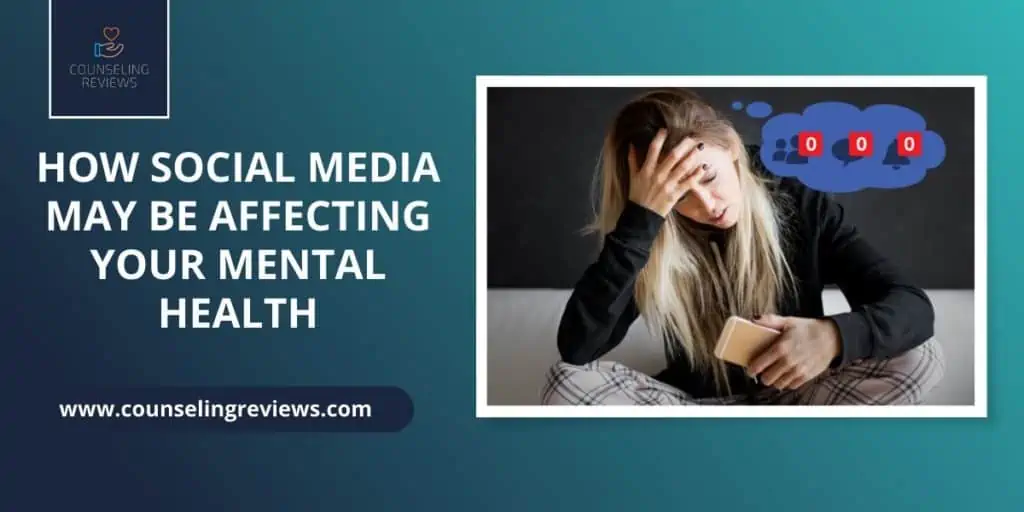In today’s digital world, the emergence of social media platforms has defined and shaped positive aspects of our living lifestyles. We are more interconnected than ever. This brings new opportunities, but there are also challenges, huge problems that affect us all.
Our performance and reliability on social media can damage our mental and emotional health, with the American average checking 28 times a day.
The constant flow of beautifully well-filtered photos on Instagram can undoubtedly bring down the self-esteem of many people. Also, checking your Twitter feed obsessively right before you go to bed can contribute to poor sleep quality
This article should discuss some side effects that social media could negatively affect your mental and physical health without even noticing it.

It Is Addictive
It may be credible to refer specifically to ‘Facebook Addiction Disorder.’ There are many addiction indicators, such as neglect of personal life, mental concern, escapism, addictive behavior, and deception appear to be evident in some people who use social media networks exceedingly.
Some studies have proven that people tend to go through some withdrawal. Thus, they faced psychological signs and stress when they stopped using it. These actual physiological changes accompany psychological side effects.
It Builds More Sorrow and Less Comfort
The more we access to social media platforms, the less happy we appear to be. One research showed that Facebook use among young adults was related to both less moment-to-moment joy and less satisfaction with life.
Another study found that social media use is associated with a greater sense of social isolation. Not shockingly, the more people spend hours on these social media apps, the more socially disconnected they become. Social alienation is one of the worst conditions for people, psychologically, physically, and emotionally.
Connecting Our Lives with Others Is Mentally Unhealthy
The comparison factor is one of the main reasons that make people feel socially isolated in social media platforms. We get into the cycle of comparing ourselves with others while scrolling our lists and deciding how we evaluate ourselves.
One research looks at how we interact with other tweets “upwards” or “downwards” ways. That is if we feel better or worse than our friends. It turns out that both forms of distinctions made people feel worse, which is surprising, as even upward connections in real life make them feel bad and sad.
It Can Lead to Jealousy and a Vicious Cycle
It is no surprise that the comparison variable in social media contributes to hatred and envy. Most people admit that looking at other people’s exotic holidays pictures and well-educated kids are jealousy-inducing. Studies have demonstrated that the use of social media causes feelings of sadness.
This degree of envy conflicts taking place on Facebook alone is shocking, providing evidence that Facebook offers a breeding ground for discriminatory reactions and bad feelings.
The Negative Aspects of Social Media
Technology is increasingly growing, and little has been done to determine the long-term effect of the use of social media on mental health. Numerous studies, however, found a significant connection between massive social media and an enhanced risk of distress, fear, loneliness, self-harm, and even suicide attempts thoughts.
Social media can develop harmful practices, such as:
Inadequacy and Appearance Comparisons
Manipulated images on social networking sites and media can trigger feelings of inadequacy and insecurity about one’s appearance and life circumstances, despite the awareness of photo editing practices.
Fear of Missing Out (FOMO) and Social Media Addiction
Social media platforms amplify the fear of missing out (FOMO) by showcasing seemingly better experiences. This can lead to low self esteem issues, anxiety disorders, and addictive behaviors, as users constantly seek updates and notifications.
Isolation and Loneliness
Paradoxically, excessive usage of platforms like Facebook, Snapchat, and Instagram can result in depressive symptoms and heightened loneliness, according to a University of Pennsylvania study. Decreasing social media use has been shown to decrease feelings of isolation and improve overall well-being.
Impact on Mental Health
The lack of face-to-face interactions due to prioritizing social media interactions in person relationships can negatively affect mental health. Direct, personal connections are essential for stress reduction and mood enhancement, while excessive social media use can contribute to anxiety and depression.
Cyberbullying and Emotional Scars
Social media exposes individuals to cyberbullying, with a significant percentage of teens reporting incidents. Offensive comments, hurtful rumors, and abusive behavior can leave deep emotional scars.
Self-Centeredness and Distancing from Reality
Constant sharing of selfies and personal thoughts on various social media sites can foster an unhealthy self-centered mindset and create distance from meaningful real-world relationships.
What’s driving your social media use?
In today’s era, a majority of individuals access social media through smartphones or tablets, offering convenience in staying connected. However, this accessibility also implies a constant presence of social media.
This uninterrupted and heightened connectivity can lead to difficulties in controlling impulsive behaviors, with frequent notifications and alerts impacting concentration, disrupting sleep patterns, and fostering a dependence on devices.
Social media platforms are skillfully crafted to captivate your attention, prolong your online presence, and encourage frequent screen checks for updates. Such strategies are integral to the revenue generation of these companies.
Yet, similar to compulsions like gambling or addictions to substances such as nicotine, alcohol, or drugs, using social media can cultivate psychological yearnings. The receipt of likes, shares, or positive reactions to posts can trigger the release of dopamine in the brain—the same “reward” neurotransmitter activated by winning in gambling, savoring chocolate, or smoking a cigarette.
As these rewards accumulate, the desire to spend more time on social media escalates, even to the detriment of other essential aspects of life.
Ways Social Media Can Affect Your Mental Health
Substitute for Real-World Interaction
Social media use can replace meaningful offline interactions, leading to a decrease in face-to-face time spent with friends and family. Even when in the company of others, the compulsion to check social media persists, fueled by the fear of missing out on others’ experiences.
Comparative Self-Esteem
Regularly comparing oneself unfavorably to others on social media platforms can significantly impact self-esteem and body image. This can contribute to feelings of inadequacy and even trigger patterns of disordered eating.
Cyberbullying Concerns
Worries about cyberbullying or feeling powerless against hurtful content that others may post about you can cause significant distress and anxiety. The lack of control over online narratives can take a toll on mental well-being.
Distraction from Responsibilities
The pressure to maintain an active social media presence, garner likes and comments, and respond quickly to friends’ posts can lead to distraction from important tasks such as school or work. This distraction can hinder productivity and contribute to stress.
Lack of Self-Reflection
Constant engagement with social media leaves little time for introspection, self-discovery, and personal growth. The absence of moments for self-reflection can hinder personal development and understanding.
Risk-Seeking Behavior for Validation
Engaging in risky activities or pranks to gain attention, likes, or shares on social media showcases a willingness to compromise personal safety for virtual validation. This behavior can have dangerous consequences.
Supporting a Child or Teen Dealing with Unhealthy Social Media Use
Monitoring and Setting Limits
Understanding your child’s online interactions helps address issues effectively. Utilize parental control apps to manage data and screen time. Adjust privacy settings to reduce exposure to negativity.
Exploring Underlying Concerns
Look beyond social media for deeper problems. Are school, shyness, or home issues affecting your child? Open dialogues about their feelings and experiences.
Implementing Social Media Breaks
Incorporate breaks from social media into daily routines. Prohibit its use until homework is done, restrict phones during meals and bedtime, and organize device-free family activities.
Promoting Realism about Social Media
Teach your child that social media doesn’t accurately depict lives. Highlight that people curate content and appearances, leading to misleading comparisons. Emphasize that self-worth isn’t tied to online popularity.
Encouraging Offline Pursuits
Shift focus to physical activities and hobbies for in-person interaction. Family exercise and hobbies boost self-esteem, alleviate stress, and reduce dependence on online validation. This fosters a healthier sense of identity beyond social media metrics.
A Take-Home Message
Humans are social creatures. We need each other affection to succeed in life. The quality of our ties has a profound effect on our mental wellbeing and happiness. Being socially bound with others can relieve stress, fear, improve self-worth, offer better comfort and joy, avoid loneliness, less mental health issues and even bring more years to your life.





